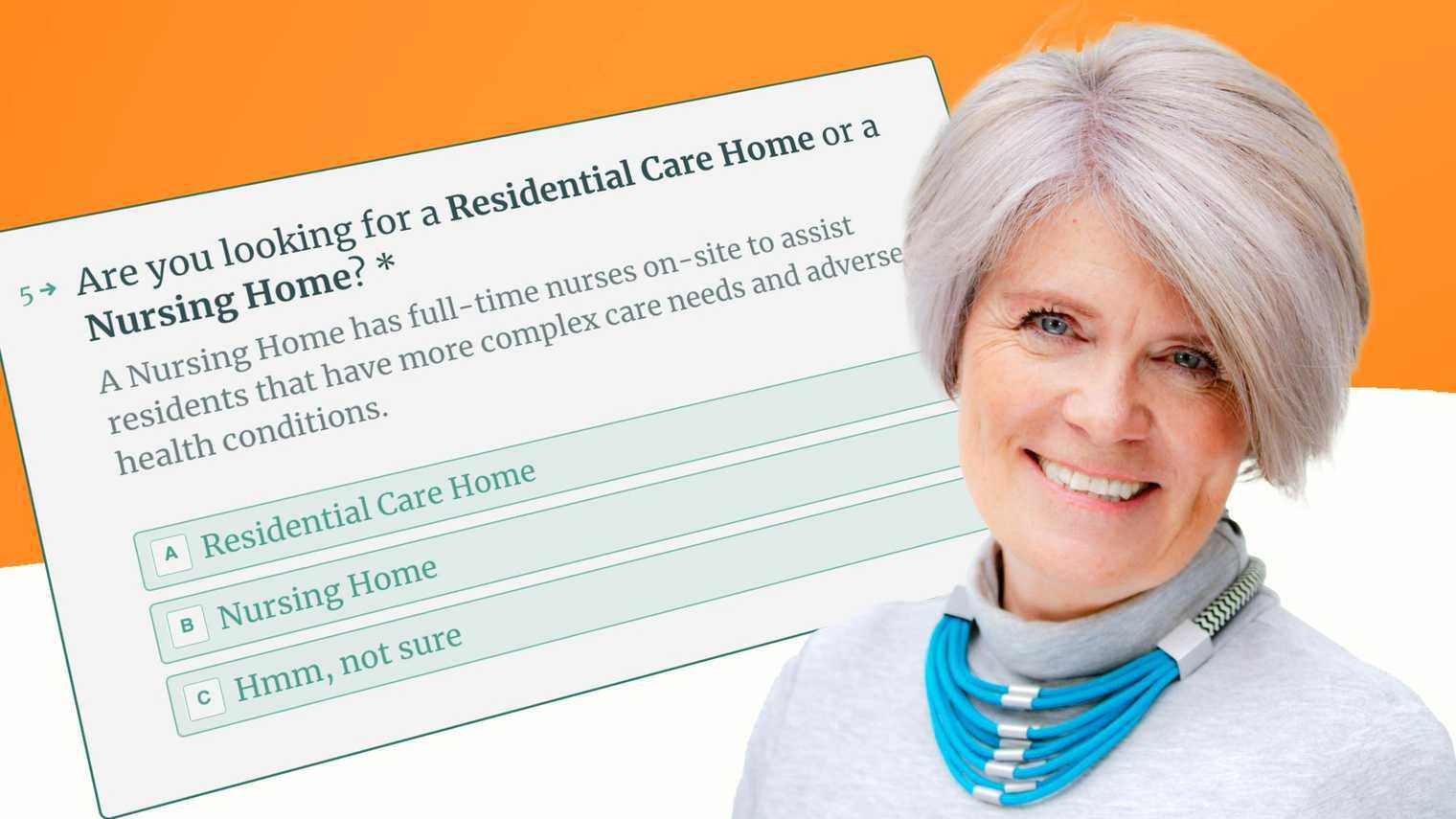Posted by Rachel Bashford
How does shortlisting help hospital discharge?
When looking for care in a home or at home, shortlisting can simplify and improve the selection process.

Read on for more information around:
- The issues surrounding hospital discharge for care seekers.
- How shortlisting works.
- Ways for care seekers to access effective and appropriate shortlisting.
What are the issues around hospital discharge?
The process of discharge is often differently experienced, dependent on the hospital, the area of the country and the circumstances of the patient. In addition, the procedure of discharge has changed over time, with many more hospitals undergoing pressures from a range of sources, affecting the rate at which discharge can take place.
With those patients who are older or are in need of additional care, hospitals sometimes make the decision that they are no longer able to stay at home or need extra support in their own home to improve health and safety.
For these patients, this may include certain delays as the sections of healthcare that deal with discharge may be overburdened. This can cause stress or anxiety for patients in this position and their families or loved ones, so the experience can often be acute in nature.
How do delays affect the whole hospital discharge process?
The hospital discharge process is shaped by many different factors. The number of beds occupied in a hospital often directly relate to how under pressure the institution is at that time.
Without being able to free up beds to regain a smoother flow of patients into and out of hospital, bottlenecks are created which intensify the burdens being placed on the whole system.
In fact, hospitals are unable to operate at 100% bed occupancy, as there are often adjustments in demand that need to be accommodated at any one time. Hospital bed demand can increase and spike at certain times throughout the year, so there has to be some element of capacity to deal with this.
If there is a patient who is medically fit to be discharged sitting in a bed because they don’t have a suitable home or secure place to go to, then the whole system can experience strain. Patients in A&E can’t move onto wards for further treatment and potential patients waiting in ambulances outside A&E can’t be brought in to be assessed.
This also has an impact on those waiting at home for ambulances to collect them and take them to hospital. Indeed, the whole system relies on smooth delivery at every stage. Without hospital discharges being completed in a timely and appropriate manner, each stage of the process has to overcome real obstacles.
This video from ITV News quickly explains some of the issues affecting the NHS and supporting services, with a look at a potential solution to some of the problems.
To help clarify the situation this article from The Nuffield Trust highlights how general and acute hospital bed availability and related occupancy have changed over time. It’s clear from the data that demand for beds now outstrips bed availability more than ever.

The Nuffield Trust and NHS data reveals that bed availability is declining while the need for more beds to accommodate patients coming into hospital has increased, ramping up the pressure on every aspect of the NHS.
In addition, the BMA (British Medical Association) reports that, over recent years, some hospital trusts have been operating with up to 95% bed occupancy during the winter months, adding additional stress within the system.
With an eye to the future, the Health Foundation’s REAL Centre recently carried out research which found that the next decade will seemingly bring more pressure to bear on the NHS.
Furthermore, the REAL Centre research suggests that hospitals will have to wrestle with around 90% bed occupancy as a regularity and not just an extraordinary event in the winter.
Although increasing bed availability numbers seems to be the obvious answer, there is a great deal more affecting the process of hospital discharge than might not seem clear at first.
When patients are ready to leave hospital, it’s vital that a safe, secure and caring place is found for them. This might be home; but for some, it’s not the right choice. For many older people or those in need of additional care, the healthcare services need to secure an appropriate place that will support them properly.
This is often where issues intensify and accelerate, as patients sit waiting to leave but don’t necessarily have the right place to move into on departure. Some organisations, such as Autumna, are coming up with smart solutions that can further support people and their families to find the right care facility or care at home to suit their needs.
How does shortlisting work?
Shortlisting is the name for the procedure where suitable care services are chosen and put on a list for the patient and their loved ones to choose the best place for their continuing care.
The shortlisting process appears a simple one at first, but this perspective may be deceptive. Creating a shortlist of the types of care settings that are appropriate for a person to live in is just one pixel of the whole picture. There are many other elements at play, such as whether that care setting has availability and room for the potential resident, amongst other factors.
Another issue that can delay hospital discharge is the waiting time that can occur between a hospital or relative contacting a care home and the care home returning that contact with relevant information on availability.
Debbie Harris, the founder of Autumna, discusses these mounting complications in this short conversation.
How do hospitals organise discharge?
Hospitals organise ongoing care packages for patients requiring further care. It’s quite normal for patients to have varied experiences depending on care requirements, the hospital itself or any covid regulations that are still in place. It would appear that individuals and their families often face individual problems as a result.
The journey of a person through hospital is termed the ‘patient flow’. However, even though a person is medically fit to leave hospital, they are sometimes left sitting in their bed due to a delay caused by the lack of ability to identify appropriate care provision post-hospital.
In truth, there are a multitude of factors that can come into play during this time, including the need for specialist transport to take the patient onto their new place of residence or back home, whichever environment has been chosen as the best fit for patient needs.
What do we know about hospital discharge delays?
Autumna estimates that around 40% of later life patients require home care after hospital, with 4% in need of a care home place. Hospitals usually have a 'best interests' meeting involving multidisciplinary stakeholders – including social services or consultants – to secure the right care placement for the patient.
Additionally, Autumna have found that 20% of the people and families they support are sitting in a hospital bed waiting to be discharged, but have either not identified their new home or are facing delays in securing a place.
There are real consequences for later life patients who are spending long periods of time in hospital. They may face a higher risk of catching other infections, covid or flu . Plus, a lack of regular movement could increase the chance of losing essential muscle mass that’s vital for long-term good health.
It’s true to say that, in order for this process to run smoothly, good communication with social care services is necessary to ensure the needs of the patient will be met by the potential care provider. This is where it can become tricky for hospitals, with pressures due to staffing or staff’s time being stretched, so they struggle to find appropriate care provision for patients that need it.
How can patients access effective shortlisting?
With all these issues in mind, Autumna has launched an easy to use, simple simple care assessment tool that streamlines the search for care providers in a really straightforward and uncomplicated manner.
It couldn’t be easier to fill in a quick online form that takes a few details about your or your loved one’s requirements. An expert team of advisers take the burden away by searching for the right care providers - whether that's visiting care at home or a residential or nursing home - without the pressure being placed on families. This is a completely free service with no obligation to choose any place on the list.
Not only will these potential choices be accurately and carefully matched to individual needs, but there should also be an available place waiting to be taken up. This delivers reassurance that there is freedom of choice with realistic options accessible straight away.
What is the big benefit of the Autumna elder care shortlist?
The reason many people are turning to Autumna for support and information about their care home and home care options is because, unlike most other directories that list only the providers who pay them a finders fee, Autumna's database covers every registered care provider in the UK - that's over 26,000 in total.
Smart filters on the website allow patients and discharge teams to narrow that search down to show all care providers who can meet whatever specific needs might be required.
If you need more help, email us here: info@autumna.co.uk or call our Advice Line on 01892 335 330. The line is open seven days a week. (8:30am - 5:30pm Mon-Fri, 10am - 5pm Sat, 10am - 4pm Sun).
Other articles to read
Autumna Blog

Older Persons Care Advice
How to shortlist care homes in Exeter
April 17th, 2025
Looking for an adult day care centre near you? Discover how to find safe, joyful care for your loved one—and support for yourself—on Autumna.

Older Persons Care Advice
What is Discharge to Assess?
April 16th, 2025
Discover how Discharge to Assess (D2A) supports faster recovery, reduces hospital stays, and how Autumna helps simplify finding the right care.

Older Persons Care Advice
What are the benefits of person-centred care?
April 9th, 2025
Discover the benefits of person-centred care—from improved wellbeing to better outcomes—for individuals, families, and care providers alike.
Frequently Asked Questions
Patient flow is a term that describes the journey of a person through hiosptial from reception to discharge.
20% of Autumna's elder care support enquiries now come from patients waiting to be discharged from hospital.






